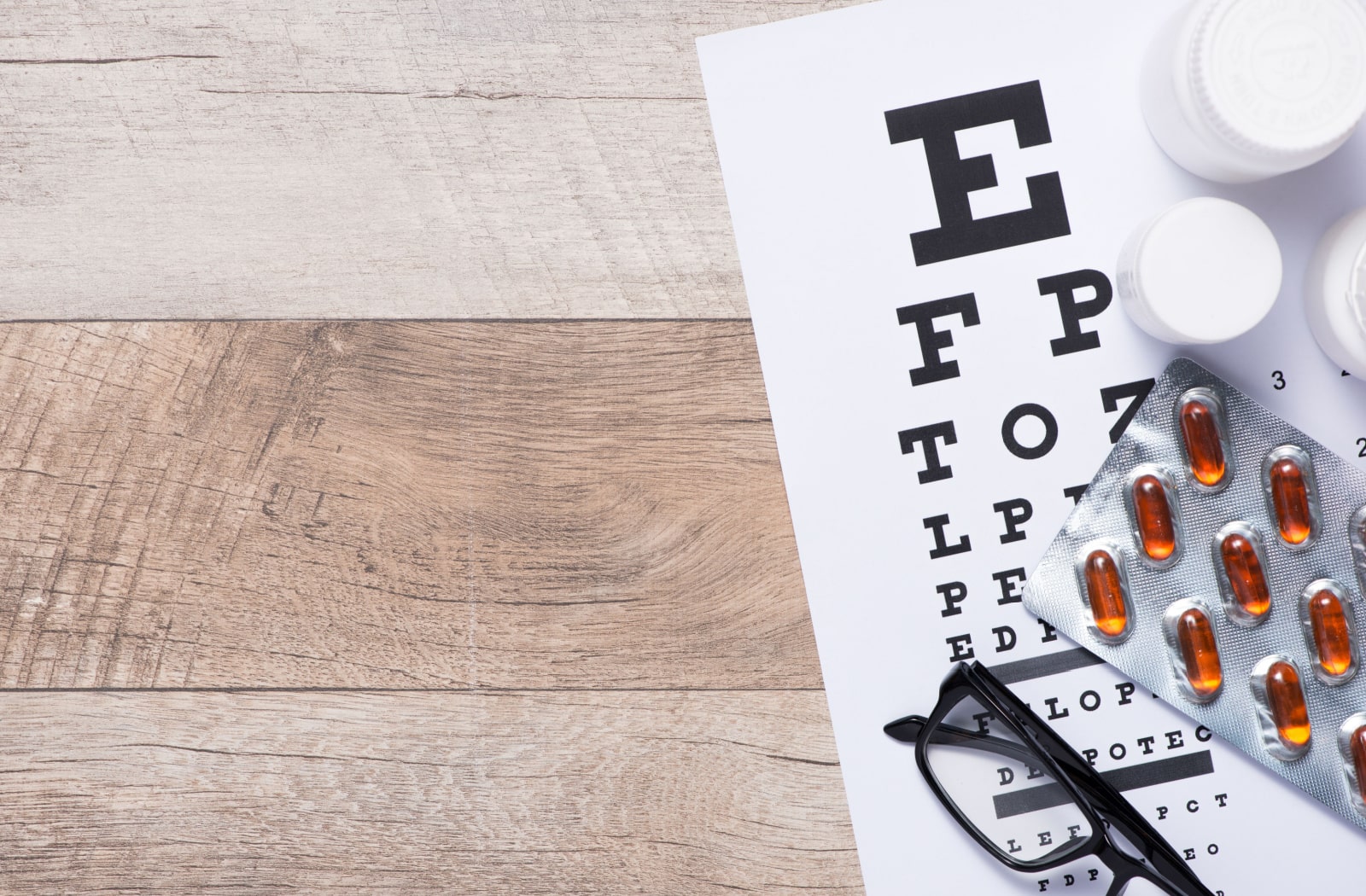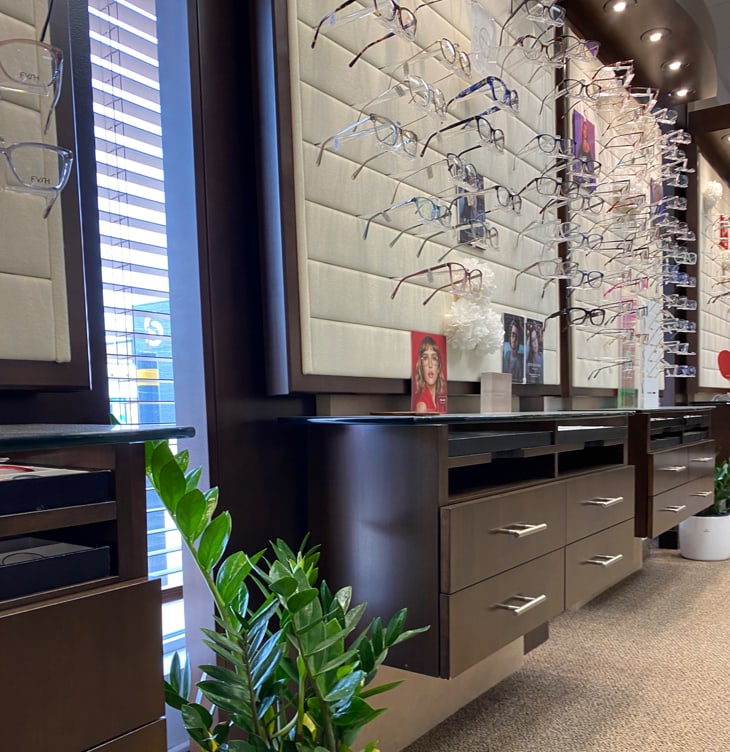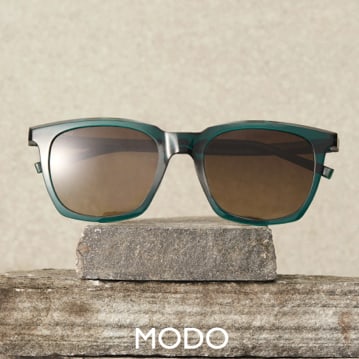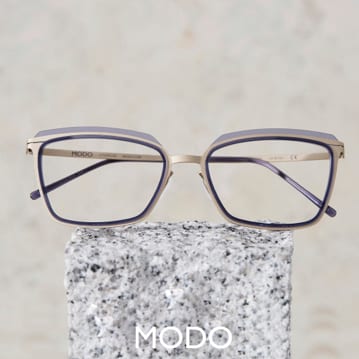For those with dry eyes, it can seem like there’s no end. The stinging, burning, and redness are ever-present. It doesn’t just affect your eyes; it can affect your entire life. That’s why there’s nothing better than getting those dry eyes treated by a professional.
While you may have heard about treatments from eye drops, masks, or eyewear, did you know that vitamins and supplements can help dry eyes? Studies have shown that specific vitamins and supplements can help preserve a healthy tear film. After a comprehensive eye exam, nutritional dry eye management could be offered to you by your optometrist as a tool to use to help alleviate symptoms.
What is Dry Eye?
Dry eyes happen when the eye doesn’t produce enough tears or when those tears don’t last long enough due to poor tear quality. This can be confusing for people with dry eyes, as they could produce a sizeable amount of tears. Unfortunately, those tears are rolling down their face rather than staying where they need to be (in your eyes!).
Some people have described dry eyes as “gritty,” which is uncomfortable enough to imagine. You may also notice these signs and symptoms:
- Stinging or burning
- Light sensitivity
- Redness
- The feeling of having something in your eye
- Extra tears without relief
- Trouble wearing contact lenses
As we grow older, we produce fewer tears. Nearly 30% of people over 50 are affected by dry eyes, with women being more common than men to exhibit these symptoms. If you notice these signs, contact your optometrist.
What Causes Dry Eye?
While a lack of tear production may cause dry eyes themselves, other factors may trigger a deficiency or instability. Aging is a common cause of dry eyes since, as stated earlier, we produce fewer tears as we grow older. Other body changes can cause dry eyes, such as hormonal changes during pregnancy or menopause or comorbid systemic diseases. You could see your dry eye get worse if you live or work in a place with dry air or dust. Even seasonal changes can affect your dry eyes.
If you spend a lot of time at a computer, you could be dealing with digital eye strain. Generally, when looking at a screen, we don’t blink as much as we should. This causes the eyes to dry out or overwork if you have a poorly set up workspace where you’re squinting through monitor glare.
The most common culprit, however, is Meibomian Gland Dysfunction (MGD), with a study showing MGD is the cause of dry eyes in 86% of people. Meibum is an oil and 1 of the three parts of your tear film, along with water and mucins. In those with MGD, these tiny glands along your eyelids don’t make enough of this oil, and, as a result, the water on your eye could evaporate too fast, leaving you with dry eyes.
Combined with improper use of cosmetics along the lid margin, the resulting decrease of oil secretion can make your dry eye symptoms feel pretty uncomfortable, amongst other factors.
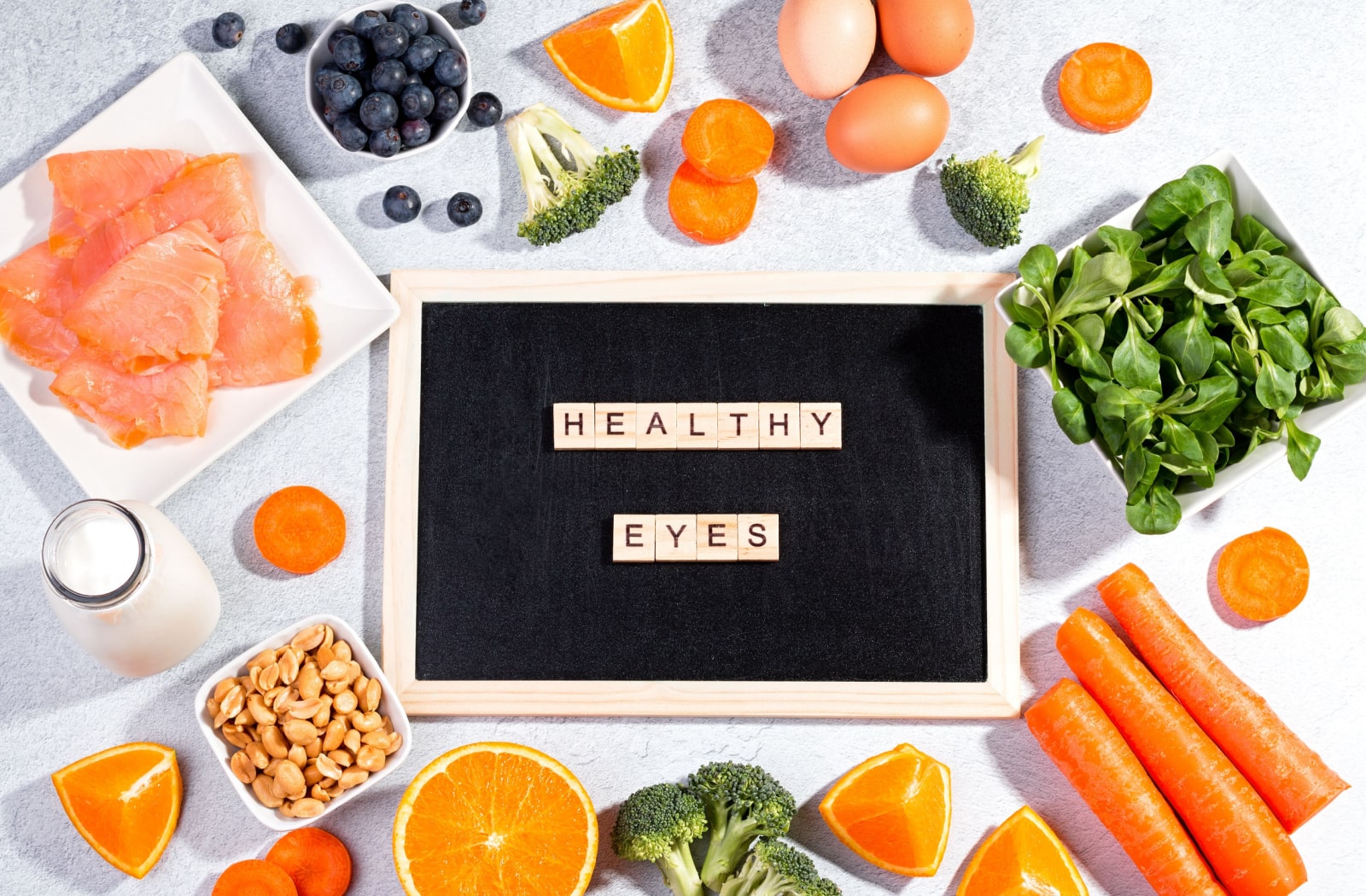
How Can Vitamins and Supplements Help?
Supplements and vitamins could be your answer if you’re dealing with persistent dry eyes. The research in this area is still evolving, and since the best source for these nutrients comes from our diet, it’s essential not to take too much of one and target some deficiencies we may have
Omega-3
This fatty acid is found in fatty fish, flax seeds, and walnuts. Due to the few foods this supplement appears in, especially in the North American diet, omega-3 supplements are offered to make up for the deficit. Fish oil is the most common one of these, though flax seed can be the choice for some. Eggs, milk, and yogurt can also be fortified with omega-3 fatty acids.
Some research has shown omega-3 can reduce inflammation to alleviate symptoms and pain associated with dry eye while reducing the tear evaporation rate.
Vitamin A
Vitamin A is present in different forms in both plant and animal products. This includes dairy, fruits, vegetables, liver, oils, and fish. It’s vital in the function and protection of vision and eye health, helping to maintain the integrity of your cornea and the conjunctiva.
When your eyes suffer from dry eye disease, it may damage the cells at the cornea’s surface, the clear dome of your eyes, or the white of your eyes. Vitamin A ointment or oral supplements can be used to speed the healing of those cells. Also, you need vitamin A to produce high-quality tears, so a lack of it can result in dry eyes.
Vitamin D
As Canadians in the cold north know, vitamin D comes primarily from exposure to the sun. It can also be found in certain foods such as egg yolks, tuna, salmon, fortified cow milk, and cereals, while some people may take vitamin D supplements.
According to various studies, there is a connection between vitamin D deficiency and dry eyes. Vitamin D helps to regulate the inflammation that occurs at the eye’s surface in most ocular surface diseases, including dry eyes. A lower serum level of vitamin D is associated with a lower level of tear fluid, while tear vitamin D levels were more closely related to dry eye disease and ocular surface discomfort. A recent study suggests that vitamin D supplementation can be used as an adjuvant to routine dry eye treatment to improve the outcome of the ocular surface in patients with vitamin D deficiency.
Vitamin B12
If you suffer from severe dry eye, or a derivative condition called neuropathic ocular pain, limited studies suggest that we should be looking at your vitamin B12 levels. In case of a deficiency, a better outcome is achieved from dry eye treatment when those B12 levels are brought toward normality.
Continuing Treatment for Dry Eyes
Vitamins are only one part of the treatment for dry eyes, but an important one. They are good ways to help improve our dietary deficits. Here are a few other preventative measures you can take to ease your symptoms:
- Take eye breaks during tasks that require looking at a screen
- Wear eye protection such as wraparound sunglasses to block wind and air debris
- Avoid air blowing on your eyes
- Use artificial tears if you have chronic dry eyes
If you’re curious about how vitamins and supplements can help your dry eyes or have any other vision concerns, simply contact us, and our team at Old South Optometry will be happy to help.


